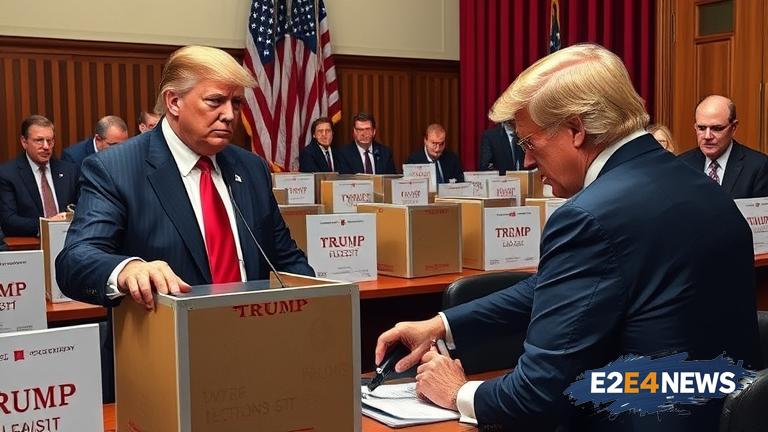The Trump administration has made a request to the Illinois Elections Board for voter data, including names, addresses, and voting history. This move has raised concerns among voter privacy advocates and election officials, who fear that the data could be used to suppress voter turnout or target specific groups of voters. The request was made by the Presidential Advisory Commission on Election Integrity, which was established by President Trump to investigate allegations of voter fraud. The commission has requested data from all 50 states, but some states have refused to comply, citing concerns about voter privacy and the potential for the data to be used for nefarious purposes. Illinois election officials have expressed concerns about the request, but have not yet indicated whether they will comply. The request has sparked a heated debate about voter privacy and the role of the federal government in regulating elections. Some argue that the data is necessary to ensure the integrity of the electoral process, while others claim that it is an overreach of federal power and a threat to voter privacy. The Illinois Elections Board has stated that it will review the request and consider the potential risks and benefits before making a decision. The board has also noted that it is required by law to protect the privacy of voters and ensure that their personal information is not used for improper purposes. The request has also raised concerns about the potential for voter suppression, particularly in communities of color and low-income communities. Some argue that the data could be used to target these communities and suppress voter turnout, which could have a disproportionate impact on the outcome of elections. The Trump administration has denied any allegations of voter suppression, but the request has nonetheless sparked widespread criticism and concern. The issue has also highlighted the need for greater transparency and accountability in the electoral process, particularly with regards to the use of voter data. As the debate continues, it remains to be seen whether the Illinois Elections Board will comply with the request and what implications this may have for voter privacy and the integrity of the electoral process. The request has also sparked a wider conversation about the role of the federal government in regulating elections and the need for greater protections for voter privacy. Some have called for greater oversight and regulation of the use of voter data, while others have argued that the federal government should play a more limited role in the electoral process. The issue is likely to continue to be a topic of debate and controversy in the coming weeks and months. The request has also raised questions about the potential consequences of complying with the request, including the potential for voter data to be used for improper purposes. The Illinois Elections Board has stated that it will carefully consider these risks and benefits before making a decision. The board has also noted that it is committed to protecting the privacy of voters and ensuring that their personal information is not used for improper purposes. The request has also sparked concerns about the potential impact on voter turnout, particularly in communities that may be targeted by the Trump administration’s policies. Some argue that the data could be used to suppress voter turnout in these communities, which could have a disproportionate impact on the outcome of elections. The Trump administration has denied any allegations of voter suppression, but the request has nonetheless sparked widespread criticism and concern. The issue has also highlighted the need for greater transparency and accountability in the electoral process, particularly with regards to the use of voter data. As the debate continues, it remains to be seen whether the Illinois Elections Board will comply with the request and what implications this may have for voter privacy and the integrity of the electoral process.
